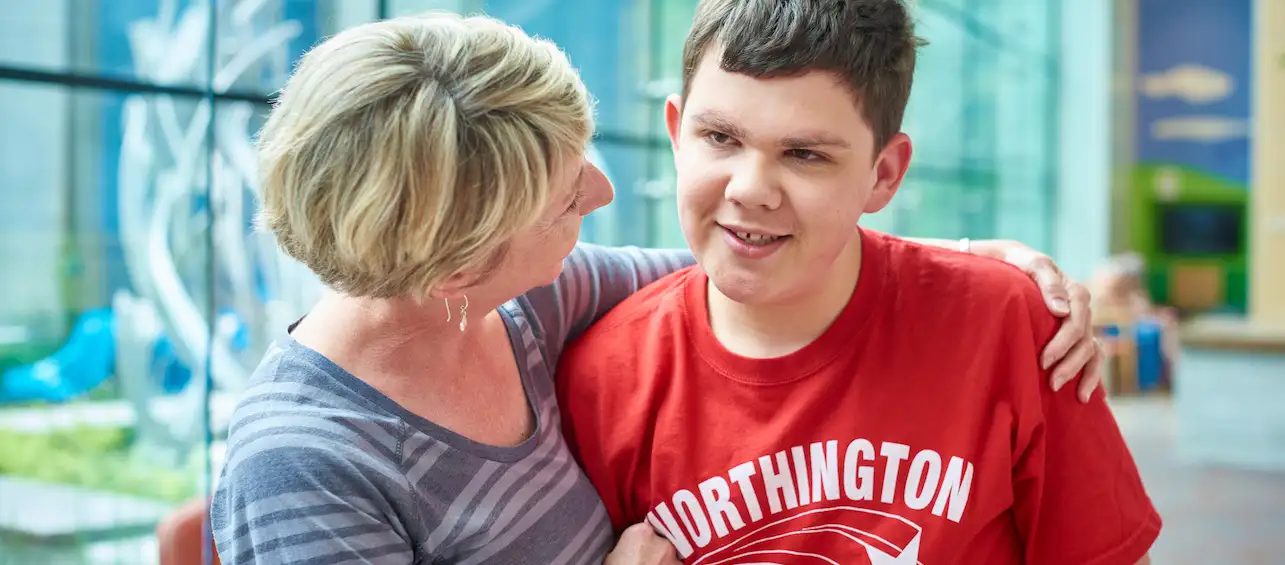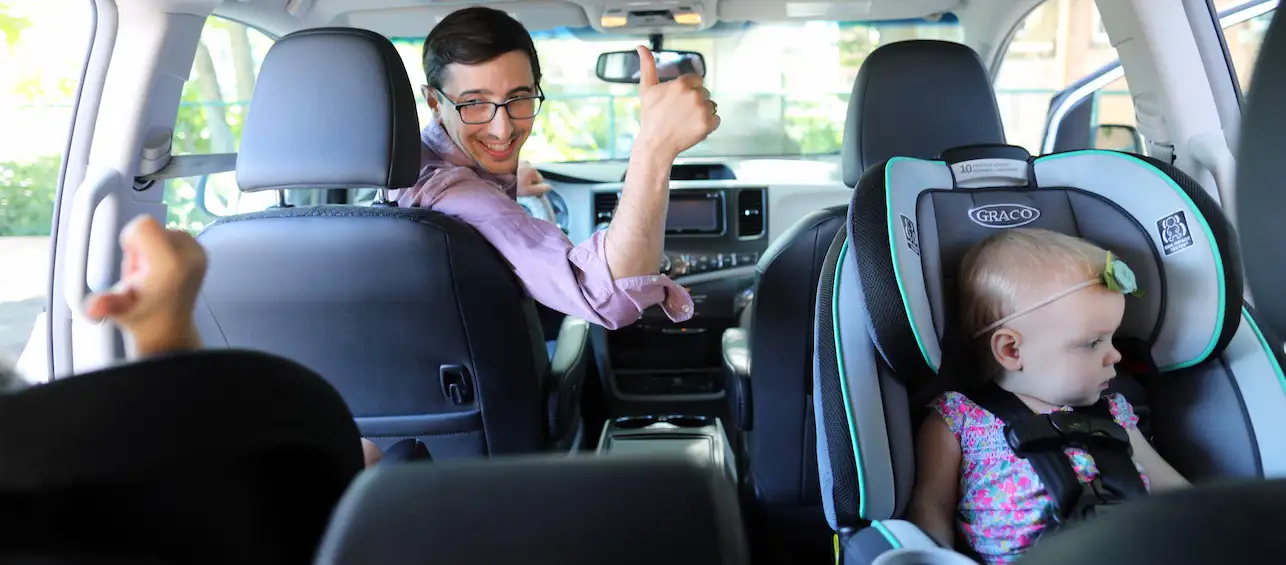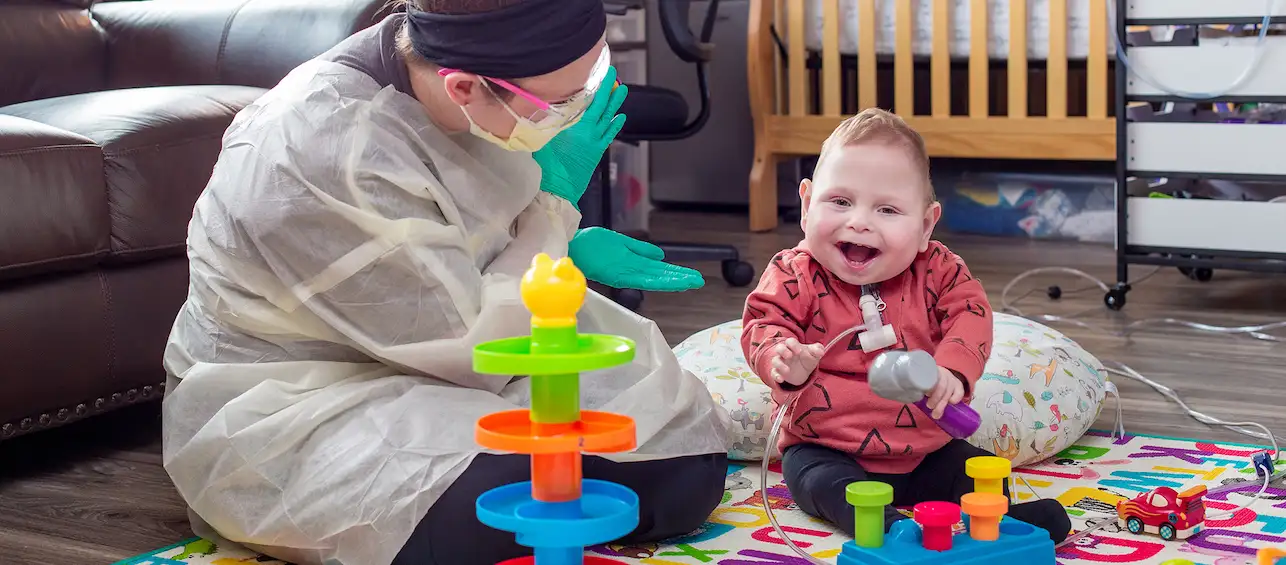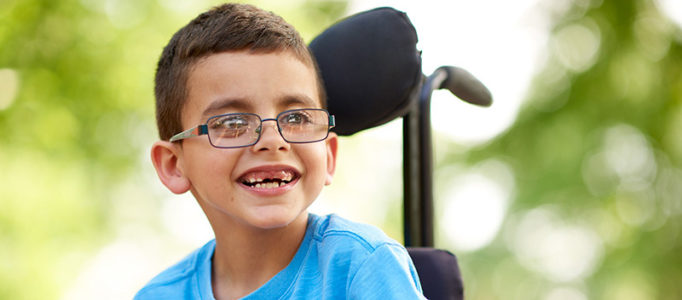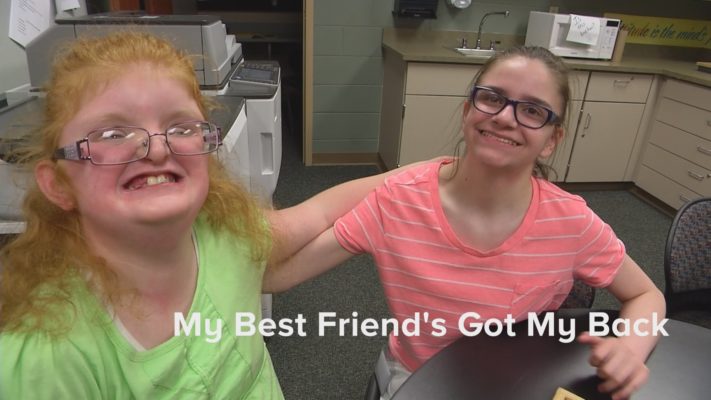When you care for a child with medically complex needs, it’s important as they grow to think about their care after they turn 18. At age 18, decision-making authority legally passes from the parent to the child.
The authority your child will need after age 18 depends on the level of care needed and their decision-making capacity. You may need full guardianship for your child at 18, or your child may need help transitioning from pediatric to adult care providers, or both.
Below is a checklist to help you prepare for this transition as your child approaches their 18th birthday.
Note: Some of the information below is specific to the state of Ohio due to where Cincinnati Children’s is located. If you live outside of Ohio, be sure to look into the services that are provided by your state/county.
PREPARING FOR GUARDIANSHIP AND/OR TRANSITIONING YOUR CHILD TO ADULT CARE
QUESTIONS TO ASK
- Will your child need substantial assistance with all activities of daily living or making decisions regarding medical treatment, living arrangements, finances and diet?
- Who would be best suited to be appointed guardian?
- Who may be a good fit for a backup guardian in case of emergencies?
- Have you looked for a guardianship expert to help you through this process? This could be a Department of Disabilities Services (DDS) service facilitator, social worker, psychologist or a guardianship lawyer.
IMPORTANT ITEMS TO DISCUSS WHEN YOUR CHILD IS AGE 12-15
- Transition policy – What is the transition policy of your primary care provider and any subspecialties? Do they give you 30 days notice, etc.?
- Transition age – What is the transition age of your primary care provider and any subspecialties?
- DDS – Are you connected to your local county board of developmental disabilities, which helps with future planning after school age, waivers, etc.?
- DDS Worker – What is their name and contact information?
- Waiver – Does your child have a DDS or Ohio Home Care Waiver?
- School – Does your child have an IEP and have you had transition discussions with school? Have you talked to a vocational educator about plans for after school? Is the school providing all support services your child requires such as therapies, nursing, etc?
- Grade – Is your child in the classes that best meet their needs? Have you talked to a vocational services coordinator about plans for after graduation?
- Transition Individualized Education Program (IEP) – Has there been any discussion of keeping your child in school beyond senior year/until age 22?
- School-age education – What grade level is your child?
- Insurance – Do you have primary insurance? If eligible, do you have Medicaid or (in Ohio) is your child enrolled with the Children with Medical Handicaps Program (CMH) or other local assistance program?
- Finances – Does/can your child have a job? Do you have Supplemental Security Income (SSI), etc.?
IMPORTANT ITEMS TO DISCUSS WHEN YOUR CHILD IS AGE 16-25
Review the above information for children ages 12-15, plus also go over the following:
Adult Primary Care Plan
- Which adult providers have you looked into/talked to?
- Have you connected with Adult Primary Care? What is the plan?
- What is your child’s current subspecialty care and what transition policies do they have?
Medical Decision-Making/Guardianship/Power of Attorney
- Will your child need assistance with medical decision-making as an adult?
- Will your child need neuropsychiatry testing or have they completed this to determine decision-making capacity?
- Have you had your child’s doctor or psychologist complete the Statement of Expert Evaluation? This must be filed within 90 days of completion.
If Your Child Will Need Guardianship
- Do you have the guardianship packet? (In Ohio, it can be found on the local probate court’s website.)
- In what county will this take place?
- Do you know what to do for the expert evaluation process?
- Have you explored power of attorney as an alternate option to full guardianship?
Health Care Financing
- Does your child get SSI? If not now, have you explored applying for SSI for your child at 18?
- Does your child have Medicaid or a waiver?
- Have you explored a STABLE account (related to the Achieving a Better Life Experience “ABLE” Act passed by Congress in 2014)?
Advance Care Planning
- Clinical accommodations – Will your child need an adjustable bed, sling weight, and/or services from the Adaptive Care Team? If your child needs an adaptive care team, what is the plan?
- Preventive care needs – We recommend your child follow up at least yearly with a primary care physician. Do they need to see any other subspecialties on a regular basis?
Education/Employment
Make sure you go over and prepare for the following:
- Is your child’s IEP/504 Plan up to date?
- School transition plan – Plans for after your child graduates from high school: day programs, vocational programs, etc.
- Graduation age plan
- Employment/Day Program
- County developmental disabilities worker – Know who your contact is
- Waiver, if needed
Transitioning to guardianship and/or adult care for your older child is a big step for the whole family. Be sure to plan ahead so you have plenty of time to take care of everything that needs your attention.
If you have questions during the process, talk to your primary care provider and/or social worker; they are well-versed in these transitions and can point you in the right direction for the information you need.

